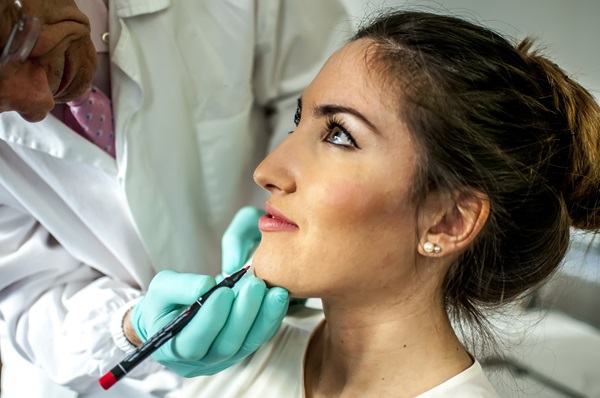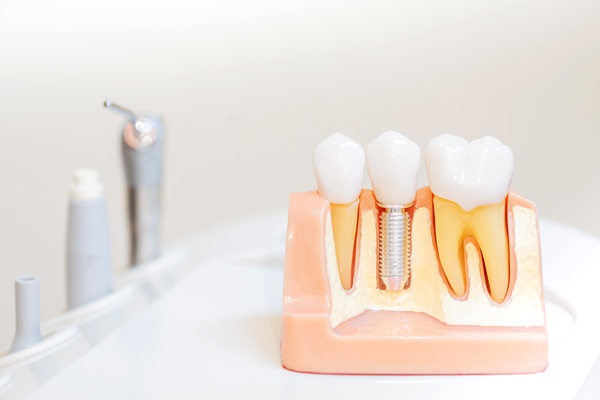Consulting a Jaw Surgeon for Improved Bite and Function

While receiving a referral to a jaw surgeon can raise many questions, our jaw surgeon and team are here to help. We have the professional training and knowledge to ensure patients receive the proper care they need. Our treatment can help address conditions affecting the mouth, jaw, head, neck, and face. We can help determine the source of the issue and can provide treatment for lasting results.
Reasons to Visit a Jaw Surgeon
A dental professional may recommend visiting a jaw surgeon for several reasons, mainly when surgery to the skeletal system or nerves is necessary. If a patient's jaw is misaligned or they experience pain in their temporomandibular joint (TMJ), it can seriously impair their bite and oral function. In turn, impaired oral function can make speaking, chewing, and breathing difficult. Furthermore, certain conditions can result from poor jaw alignment, such as obstructive sleep apnea. Therefore, a medical professional will recommend a jaw surgeon if traditional appliances do not yield adequate results.
Moreover, a dental professional or oncologist may also recommend the patient visit a jaw surgeon if oral cancer is present. Oral, facial, or neck cancer produces lesions and tumors that can impair the bite and function as well as threaten the underlying bone structure (jawbone).
How a surgeon can improve dental function
When visiting a jaw surgeon, consultation is required to determine the most effective treatment. This consultation will include a physical evaluation, a medical and dental history review, and an order of X-rays or CT scans for a better insight into the patient's condition. From there, they can curate a treatment plan. Improving a patient's dental function can include any of the following procedures:
Dental implants
If a patient's disease, infection, or malocclusion (crossbite, overbite, underbite, etc.) causes a patient to have a missing tooth, they must receive a replacement to preserve their oral health underlying jawbone. As part of their overall treatment plan, the patient must address the previously mentioned conditions before the jaw surgeon can install dental implants into the jawbone. Dental implants are titanium posts with abutments attached to the top, sticking out of the gum line, supporting a custom restorative. A restorative can be a crown, bridge, or denture. Dental implants restore dental function and appearance for a lifetime.
Jaw surgery
There are three types of jaw or orthognathic surgery: double jaw surgery, mandibular osteotomy, and maxillary osteotomy. Double jaw surgery involves surgically repositioning and shaping the mandibular (lower) and maxillary (upper) jawbones. Mandibular osteotomy corrects conditions attacking the lower jawbone, while maxillary osteotomy corrects the upper jawbone.
Tumor removal
A jaw surgeon will remove tumors and repair or reshape the soft tissue structures and underlying bone. They can also help repair damage to the bone caused by radiation therapy, which also encompasses cosmetic restructuring.
Consult our jaw surgeon
If you are having issues with the underlying bone of your head, neck, face, or mouth or have been recommended for a tumor to be removed in the same areas, do not hesitate to contact our office. Our jaw surgeon is here to help restore your oral health and overall function.
Request an appointment here: https://spectrumsurgical.net or call Facial Spectrum at (816) 524-4334 for an appointment in our Lee's Summit office.
Check out what others are saying about our services on Yelp: Read our Yelp reviews.
Recent Posts
Dental implants represent a durable and aesthetically pleasing solution for replacing missing teeth. Understanding the proper care for dental implants remains essential to ensure longevity and optimal function. Adhering to recommended practices significantly reduces the risk of complications, preserves oral health, and maintains the attractive appearance and comfort associated with implants. By implementing consistent maintenance…
The jawbone is the part of the face that holds many essential elements together, such as the teeth, ligaments, and muscles; however, bone grafting may sometimes be necessary if the jawbone is too weak to perform these tasks. A person’s jawbone can deteriorate over time, whether due to age, genetics, poor oral health, cancer, or…
Finding lasting relief from issues such as misalignment and facial asymmetry can involve specialized procedures. Fortunately, corrective jaw surgery is a reliable option for addressing these concerns. A dental specialist realigns the upper or lower jaw during this process to promote better function and comfort. Although the procedure can benefit health and appearance significantly, a…
Many individuals seek rhinoplasty to enhance facial harmony, improve nasal function, or correct structural abnormalities. As a surgical procedure that reshapes the nose, rhinoplasty can address aesthetic concerns as well as breathing difficulties caused by structural defects such as a deviated septum. Understanding the consultation process, surgical techniques, and what to expect from the recovery…


